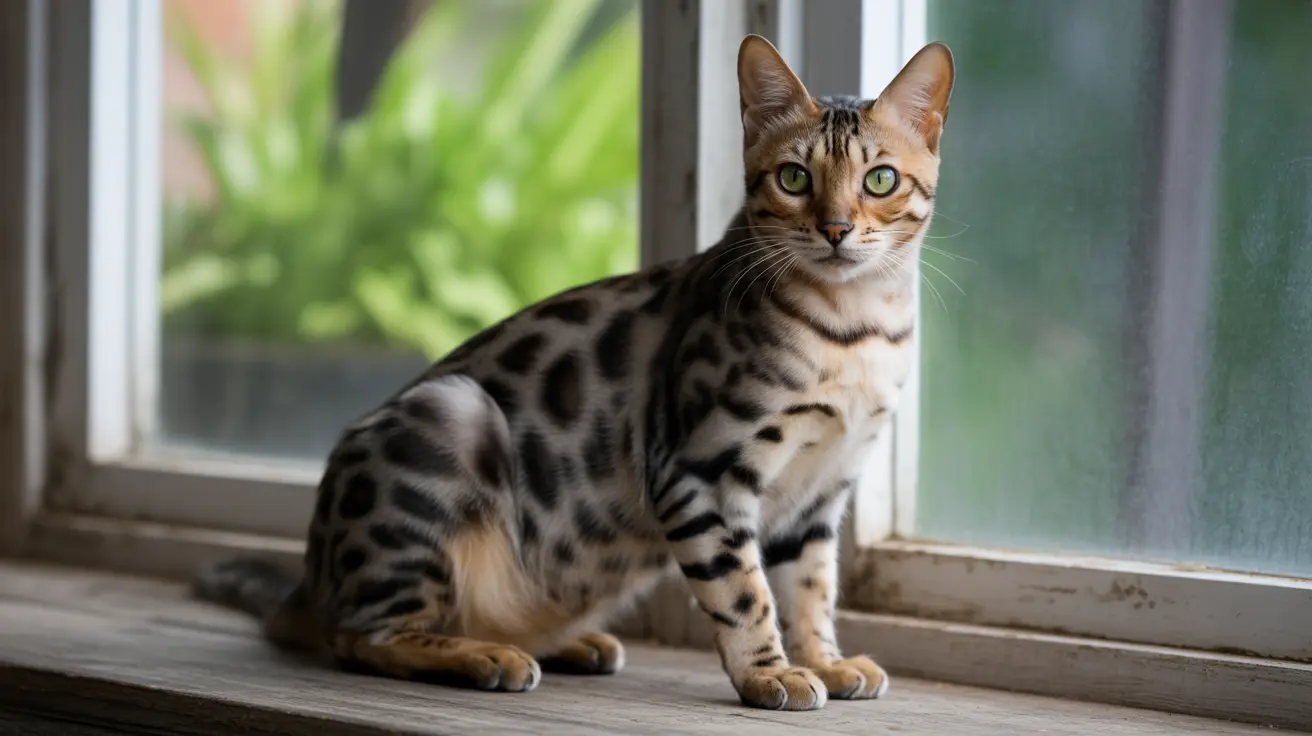If you've ever caught your cat intently watching your every move, you're not alone. Cat owners often wonder about the meaning behind their feline friend's penetrating gaze. From expressing affection to demanding dinner, a cat's stare can communicate various messages that are essential to understand for maintaining a healthy relationship with your pet.
Let's explore the fascinating reasons behind your cat's staring behavior and learn how to interpret these silent signals accurately.
The Language of Feline Eye Contact
Cats are masters of nonverbal communication, and their eyes play a crucial role in expressing their needs and emotions. Unlike humans, who use prolonged eye contact as a sign of attention and interest, cats have developed this behavior specifically for interacting with their human companions.
When your cat maintains eye contact, they're often trying to initiate some form of interaction or communication with you. This learned behavior has evolved through domestication, as cats have discovered that humans respond positively to direct eye contact.
Common Reasons Your Cat Stares at You
Expressing Love and Trust
One of the most heartwarming reasons for your cat's stare is to show affection. When accompanied by slow blinks – often called "cat kisses" – a gentle stare indicates that your cat feels safe and comfortable in your presence. This behavior is unique to cats and represents a significant sign of trust in their human companions.
Requesting Food or Attention
Cats quickly learn that sustained eye contact with their owners often leads to rewards. Your cat may stare intently when they're hungry, usually combining this gaze with other behaviors like meowing, pawing, or leading you to their food bowl. Similarly, they might stare to request playtime or petting.
Displaying Hunting Instincts
Sometimes, your cat's fixed gaze relates to their natural predatory instincts. You might notice their pupils dilate and their body tense up as they track your movements. This behavior is particularly common during play and shows that your cat's wild instincts remain intact despite domestication.
Reading Your Cat's Body Language
To understand the true meaning behind your cat's stare, it's essential to observe their overall body language:
- Relaxed posture with soft eyes: Contentment and affection
- Dilated pupils with twitching tail: Excitement or agitation
- Rigid body with wide eyes: Potential stress or fear
- Slow blinking with relaxed muscles: Trust and comfort
When to Be Concerned
While most cat staring behaviors are normal, some situations warrant attention. If your cat frequently stares at walls or into space, especially if they're elderly, this could indicate cognitive dysfunction. Additionally, intense staring accompanied by aggressive body language might signal stress or territorial issues that need addressing.
Frequently Asked Questions
Why does my cat stare at me so intensely, and what does it mean?
Intense staring can indicate various things, from affection to hunger. The meaning depends on context and accompanying body language. If paired with slow blinks and relaxed posture, it's likely affectionate. If combined with meowing near mealtime, your cat is probably hungry.
How can I tell if my cat is staring at me for food, attention, or another reason?
Look for additional cues: If they're near their food bowl, leading you to the kitchen, or it's close to feeding time, they're likely hungry. For attention, they might purr, rub against you, or display playful behavior while staring.
What does it mean when my cat stares at me and blinks slowly?
Slow blinking while staring is a sign of trust and affection, often called a "cat kiss." This is a positive social behavior that you can reciprocate by slowly blinking back at your cat.
Should I be worried if my cat stares into space or at nothing for long periods?
Occasional staring at seemingly nothing is normal, as cats can detect subtle movements and sounds we can't. However, frequent blank staring, especially in older cats, could indicate cognitive issues or health problems requiring veterinary attention.
How do I respond if my cat stares at me with dilated pupils or a tense body posture?
When your cat displays these signs, they might feel threatened or overstimulated. Give them space and avoid direct eye contact. Create a calm environment and let them approach you when ready.






